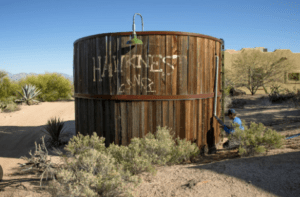
Photo Credit: azcentral.com
The Rio Verde Foothills got some good news recently in their fight for secured water; Senate Bill 1432 was signed by Governor Katie Hobbs last week, thus ending a tumultuous time for the embattled community. But there was a reason why we had some degree of hesitation when it came to declaring victory, and this article exemplifies that concern very well.
Despite the bill being signed, there is still no immediate relief for the residents there. Unfortunately, while the long-term battle may have been won, the short-term battles remain unresolved. Those are most notably a secure near-term water source. And the reality of the relative complexity of this legislation was quick to turn optimism into skepticism, with supposed answers leading to more questions.
And what does that complexity entail? First, a new board of directors must be put together to direct the particular water district, called a “standpipe district”. Then that group must agree on a new provider and enter into an agreement. Then it must also get the agreement of the Scottsdale city council, led by a mayor that at one point was outright hostile to the participation of the city regarding a resolution of this issue.
If that wasn’t enough, that solution must then contend with potential complaints from the community, a community that is already somewhat fractured by various factions and significant infighting and clashing of egos. Even after the actual politics, there are still politics. And then, after those mazes of regulatory hurdles and interpersonal conflicts, the water must actually be delivered.
The unfortunate reality is that government works at the speed of government, not business. That is complicated even further by the fact that this is not piggy-backing off an existing government structure; this is being built from scratch from a regulatory perspective. Nothing in government is never as clear or as easy as when a singular CEO has absolute say in an action, but that is made much more difficult by the fact that this a new creation.
Until this is resolved, water will continue to be extremely expensive. While some may want to blame the residents for purchasing property in an unincorporated area, that is wrong-sighted; these are people who were simply seeking a better life, like all of us do. Along with the human cost, the many animals who were brought there are also bearing the brunt of this concern.
We can only hope that those involved on the government side understand the cost and do what they can to belie expectations, to get this truly resolved as soon as possible.

